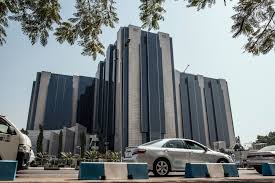The Central Bank of Nigeria (CBN) has released a draft document to modernise how banks and other financial institutions fight money laundering. In a circular dated May 20, 2025, the apex bank said the new rules will use artificial intelligence (AI) and machine learning (ML) to improve how suspicious financial activities are monitored and reported.
The circular, which was sent to all financial institutions regulated by the CBN, is titled BSD/DIR/CON/AML/018/033. It sets a minimum standard for the use of automated solutions in tracking and reporting money laundering and terrorism financing. The CBN said the new approach is needed because of the way Nigeria’s financial system is becoming more digital and the increasing complexity of financial transactions.
According to the draft, banks and other financial institutions like microfinance banks, primary mortgage banks, and digital payment platforms must start using smart systems that can monitor financial activities in real-time. These systems must be able to detect unusual patterns such as large cash deposits, cross-border transfers, or cryptocurrency transactions. The CBN said this will help the country follow both local laws and global anti-money laundering frameworks like those created by the Financial Action Task Force (FATF).
The draft framework is based on a detailed review of how Nigerian financial institutions currently handle anti-money laundering (AML) issues. It also includes international best practices. Financial institutions have until June 13, 2025, to send their comments on the draft. After that, the final version will be released and institutions will have 12 months to fully comply.
“Financial institutions shall align their AML solutions with these baseline standards within 12 months of the issuance of these standards,” the circular stated.
Under the proposed rules, financial institutions must use automated systems with AI and ML abilities to analyse customer behaviour, assign risk scores, and adapt to new threats. These systems must also connect smoothly with the bank’s core systems such as onboarding platforms, transaction processors, and reporting tools. Real-time dashboards, trend analysis, and case tracking tools are also required.
The CBN is paying special attention to customer due diligence and know-your-customer (KYC) processes. Banks must be able to access and verify identity details using the Bank Verification Number (BVN) and the National Identification Number (NIN). Customers will be monitored continuously, and their risk level will be updated based on new transactions or behavioural changes. High-risk individuals and businesses will face extra checks.
Financial institutions will also be required to screen customers against both Nigerian and international watchlists, including those for politically exposed persons (PEPs) and sanctioned individuals. The system must support fuzzy name matching to catch people who may use name variations to hide their identity. There must also be tools for adverse media checks and automatic updates of third-party lists.
Another important part of the framework is that financial institutions must use automated systems to manage and resolve flagged transactions. These systems must keep records of who handled what, when, and how, for future checks by regulators. Reports like Suspicious Transaction Reports (STR), Currency Transaction Reports (CTR), and Foreign Currency Transaction Reports must be generated automatically and sent to the Nigerian Financial Intelligence Unit (NFIU).
The CBN also wants all sensitive information to be protected through cybersecurity features like encryption, multi-factor authentication, and restricted access. Every user action on the system must be recorded for accountability.
For those using third-party technology vendors, the CBN said banks must ensure those vendors follow the same standards. All service agreements and vendor responsibilities must be well documented.
The CBN, led by Governor Olayemi Cardoso, said it will carry out regular inspections and checks to make sure institutions are following the new rules. Institutions that fail to comply within the 12-month period after the final framework is released will face penalties.
Even though the draft is still open for feedback, the CBN is advising financial institutions to start preparing now. Once the final rules are out, the countdown will begin for compliance, and there will be regular reviews to measure progress.
